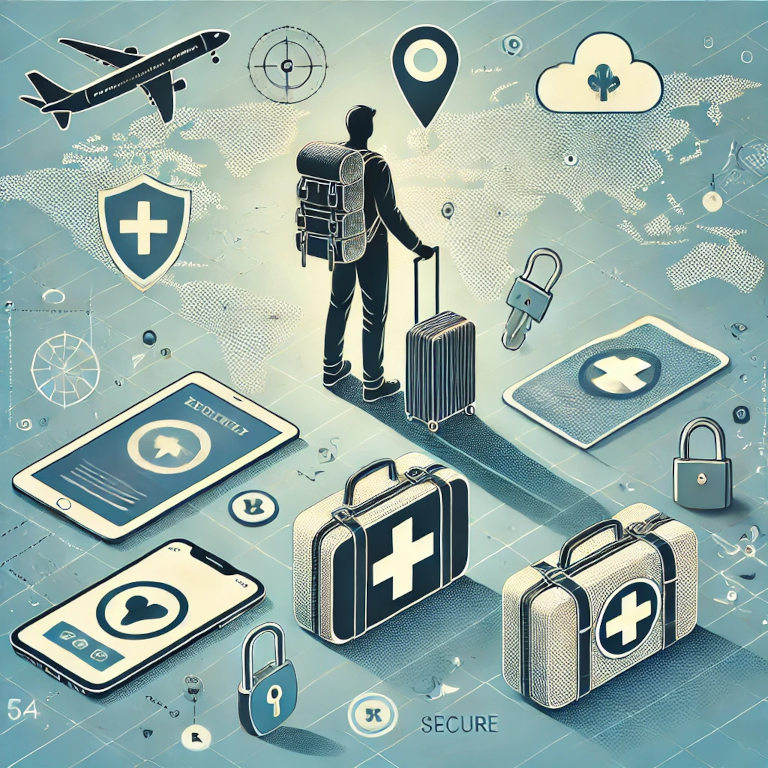Traveling is an enriching experience, offering opportunities to explore new places, meet diverse people, and create lasting memories. However, ensuring your safety while traveling is paramount. As an expert in Travel, this article provides comprehensive travel safety tips to help you prepare for a secure and enjoyable journey.
Pre-Travel Preparations
1. Research Your Destination
Understanding your destination’s culture, climate, and safety conditions is essential for a smooth trip. Research local customs, laws, and any potential safety concerns.
- Tips: Use reputable travel guides and government websites to gather information. Check travel advisories and alerts for updates on safety and health conditions.
2. Secure Travel Insurance
Travel insurance provides coverage for unforeseen events such as medical emergencies, trip cancellations, and lost luggage. It’s a crucial safety net for any traveler.
- Tips: Compare different travel insurance policies to find one that best suits your needs. Ensure it covers your activities and destinations.
3. Make Copies of Important Documents
Having copies of your important documents can be a lifesaver in case of loss or theft. Keep digital and physical copies of your passport, visa, travel insurance, and itinerary.
- Tips: Store digital copies in a secure cloud service and keep physical copies in separate bags.
Packing Essentials
1. First Aid Kit
A well-stocked first aid kit is essential for treating minor injuries and illnesses. Include bandages, antiseptics, pain relievers, and any personal medications.
- Tips: Customize your first aid kit based on your destination and activities. Include any prescription medications in their original packaging with copies of your prescriptions.
2. Safety Gear
Depending on your destination and activities, pack appropriate safety gear such as a money belt, RFID-blocking wallet, or personal alarm.
- Tips: Consider packing a portable door lock or travel lock for added security in your accommodations.
3. Weather-Appropriate Clothing
Dress appropriately for the weather and cultural norms of your destination. Layering can be useful for adapting to changing weather conditions.
- Tips: Research the local dress code to ensure you respect cultural norms and avoid drawing unwanted attention.
On the Road Safety
1. Stay Connected
Maintain regular communication with family or friends to keep them informed of your whereabouts. Share your itinerary and check in regularly.
- Tips: Use communication apps like WhatsApp, Skype, or local SIM cards for affordable connectivity.
2. Be Aware of Your Surroundings
Staying vigilant and aware of your surroundings can help you avoid potential dangers. Trust your instincts and avoid areas that feel unsafe.
- Tips: Avoid distractions like using your phone excessively in unfamiliar areas. Be cautious in crowded places and keep an eye on your belongings.
3. Use Reliable Transportation
Choose reputable transportation options such as licensed taxis, rideshare services, or public transportation. Avoid accepting rides from strangers.
- Tips: Research transportation options in advance and use apps like Uber or Lyft for added safety. Verify the identity of your driver before getting into a vehicle.
Accommodation Safety
1. Choose Reputable Accommodations
Select accommodations with good reviews and safety records. Consider factors like location, security measures, and amenities.
- Tips: Use booking platforms like Airbnb, Booking.com, or trusted travel agencies. Look for accommodations with 24-hour security or front desk services.
2. Secure Your Room
Ensure your room is secure by locking doors and windows. Use additional locks or travel locks for added security.
- Tips: Avoid ground floor rooms that are easily accessible. Use the hotel safe to store valuables.
Health and Hygiene
1. Stay Hydrated and Eat Safely
Drink plenty of water and be mindful of food safety to avoid illness. Consume bottled water and eat at reputable establishments.
- Tips: Avoid street food if you are unsure of its preparation. Carry water purification tablets or a portable water filter.
2. Practice Good Hygiene
Maintain good hygiene practices to prevent illness. Wash your hands regularly and use hand sanitizer when necessary.
- Tips: Pack travel-sized hand sanitizer, disinfectant wipes, and personal hygiene products.
Emergency Preparedness
1. Know Emergency Numbers
Familiarize yourself with local emergency numbers for police, medical assistance, and fire services.
- Tips: Write down or save emergency numbers in your phone. Know the location of the nearest embassy or consulate.
2. Have an Emergency Plan
Prepare an emergency plan in case of natural disasters, political unrest, or personal emergencies. Know the evacuation routes and safety protocols of your accommodation.
- Tips: Discuss emergency plans with your travel companions. Keep a small emergency kit with essentials like a flashlight, whistle, and multi-tool.
Summary
Travel safety is a vital aspect of a successful and enjoyable trip. By researching your destination, securing travel insurance, packing essential items, staying connected, and being aware of your surroundings, you can mitigate risks and enhance your travel experience. Prioritize your health, choose reliable transportation and accommodations, and be prepared for emergencies to ensure a safe journey. Following these travel safety tips will help you navigate new environments confidently and make the most of your adventures.






